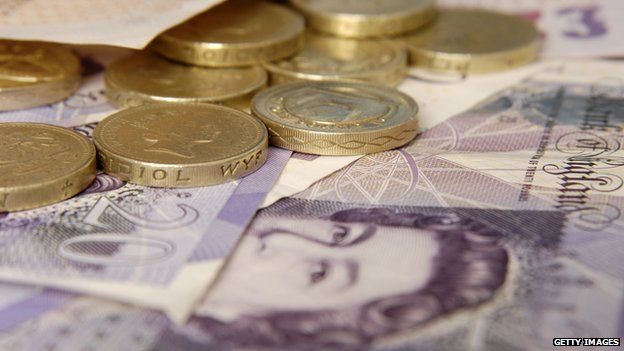Insolvency Service: Personal insolvencies at 10-year low
- Published

The number of people being declared insolvent has fallen to its lowest level for nearly a decade, figures show.
The Insolvency Service said 18,866 individuals became insolvent in England and Wales between April and June.
That is a fall of 29.3% on the same period a year ago, and the lowest total since the summer of 2005.
The number of companies going bust has also fallen to its lowest in more than seven years.
Altogether 3,908 firms became insolvent over the last three months, the smallest number since the end of 2007.
Experts said the news reflected increasing strength in the economy, and the return of real-terms increases in wages.
"It has taken a long time, but with wages outstripping inflation again, people are finding it easier to repay their debts without resorting to insolvency procedures," said Phillip Sykes, president of R3, the insolvency trade body.
'Sharp reduction'
At the same time, there has been a jump in the number of people taking out mortgages to buy a flat or house.
In the month of June, 66,582 homeowners took out a new mortgage, according to figures from the Bank of England.
That was up from 64,826 in May, and just 1,469 short of the recent peak in April.
But the same figures show a significant fall in lending to businesses.
Total borrowing by UK non-financial companies fell by £5.5bn in June, the biggest drop for four years.
"On the face of it, this sharp reduction in bank lending to businesses raises serious question marks about activity and investment," said Howard Archer, the chief UK and European economist with IHS Global Insight.
Debt levels
The fall in personal insolvencies was welcomed by the Money Advice Trust (MAT), which runs National Debtline.
However it warned about increasing debt levels.
"Many households will be able to accommodate this extra borrowing as the economic recovery continues - but we are concerned that many will turn to credit to plug gaps in their budgets," said Jane Tully, head of insight and engagement at the MAT.
She said the situation could be made worse for some people by the changes to tax credits in the years ahead.
Household debt is forecast by the Office for Budget Responsibility to reach 169% of household income by 2020.